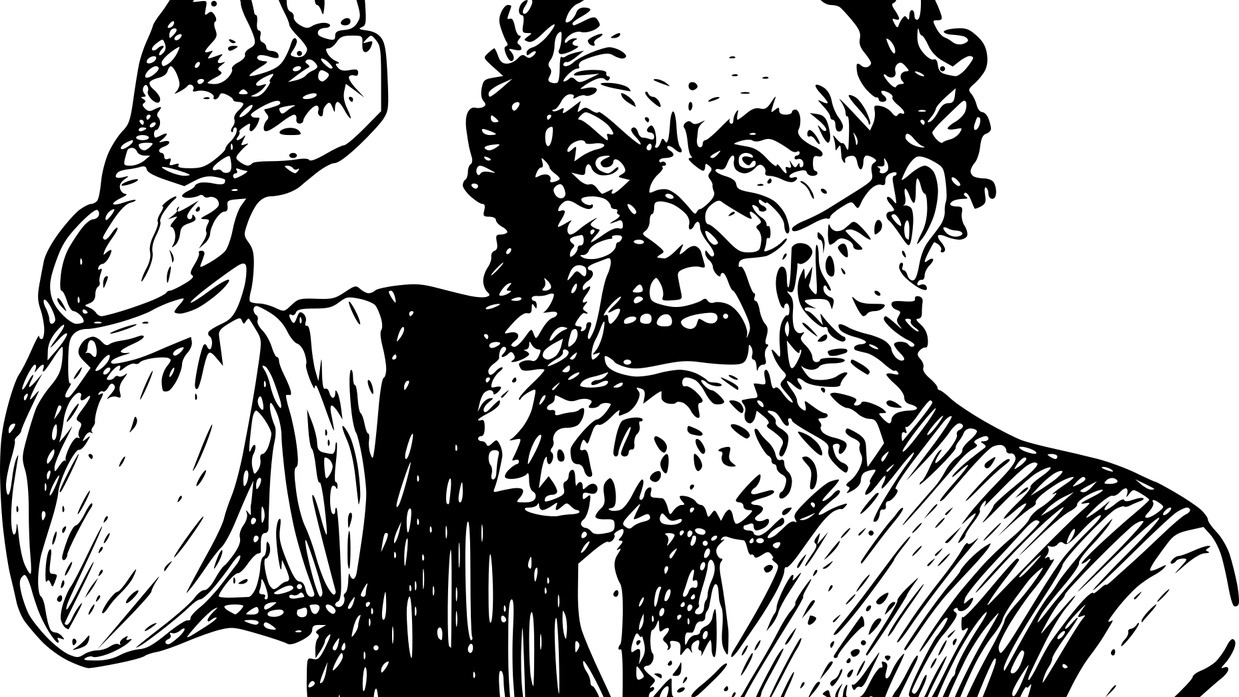
nother month, another papal interview, another spate of confusion,” Mr. Lawler writes at his usual platform, Catholic Culture. There’s not a papal statement under the sun that doesn’t befuddle him. Some people are addicted to anger, some to confusion. This time, the pope’s words were a model of clarity. “It’s not a crime,” Francis said (referring to homosexual acts). “Yes, but it’s a sin. Fine, but let’s first distinguish between a sin and a crime.” In fact, this is so simple it’s banal. If I cheat on my wife with the next-door neighbor, I’ve committed a sin. But no one’s going to arrest me for it. This everyday concept confuses Mr. Lawler. Read his article; you will marvel, not at how confusing the pope is, but at how much effort Mr. Lawler makes to be confused.
IF I SEEM EDGY.
“What the pope said was not news,” he complains. His point seems to be: Why is Francis bothering with this?
Well, probably, Mr. Lawler, because the pope was asked. The Associated Press printed a transcript of the interview; and even though it’s in Spanish, it would take one confused soul indeed not to know what “criminalización de la homosexualidad” means. The interviewer notes that, in some countries, homosexuals are punished by death (la pena de muerte), and that such laws contribute to una clima de violencia, a climate of violence. And the AP asks the pope: “¿Cuál es la posición de la Iglesia?” What is the position of the Church?
So the pope is talking about this because the pope was asked. I wonder whether Mr. Lawler would object if the pope spent a lot of time in the interview condemning abortion. Would he claim confusion and say, “This is not news”? Or is it only when the pope expresses charity to gay people that Mr. Lawler becomes agitated and complains that Catholics have long known this?
Next, Lawler complains that the pope didn’t adequately distinguish between homosexuality and homosexual acts. The pope said homosexuality was “a sin.” Lawler objects:
The Church has never taught that being homosexual—that is, feeling a physical attraction to members of the same sex—is wrong. Homosexual acts are morally wrong. Because he does not distinguish between the homosexual orientation and homosexual acts, his statement could be interpreted—and no doubt has been interpreted—as a break from the Church’s condemnation of homosexual acts.
Here I’m confused—but by Mr. Lawler. Am I really supposed to believe that a possible reading of the pope’s words are that homosexual feelings are a sin, but if you act on them, that’s okay? If I spend all day thinking about how much I want to sleep with the woman next door instead of my wife, I’m guilty of grave sin; but if I actually do it, I’m in the clear? It doesn’t appear to me that Mr. Lawler is trying to make sense of the pope’s words; it appears to me that Mr. Lawler is trying to make confusion of them. How else can one explain his strained effort to come up with a reading so ridiculous?
I’M JUST A SOUL WHOSE INTENTIONS ARE GOOD.
It’s worth noting here that Fr. James Martin also noticed that the pope conflates homosexuality and homosexual acts, and he personally asked Francis for a clarification. Fr. Martin sent the pope a dubia; imagine that. The pope responded to the dubia; imagine that.
Fr. Martin’s concern was the sensible one—not that the pope was making Church strictures more loose but that he was making them more severe. Fr. Martin didn’t want it to be known that the Church condemns same-sex attraction as well as homosexual acts. Unlike the chronically confused Mr. Lawler, Martin wasn’t worried that the pope was trading one condemnation for another.
The pope wrote a letter to Fr. Martin clarifying that his words—“it is a sin”—were referring to homosexual acts, not the homosexual orientation. The pope said that, due to the “conversational nature” of the interview, he misspoke. “When I said it is a sin, I was simply referring to Catholic moral teaching, which says that every sexual act outside of marriage is a sin.”
Lots of people conflate homosexual attraction and homosexual acts—some maliciously, some innocently—so it doesn’t alarm me that the pope would have done so too, an a careless and imprecise moment.
My guess is that the pope responded to Fr. Martin’s dubia because he could tell the intention was charitable. Fr. Martin was not trying to trap him in his words, like other concocters of dubia.
But Mr. Lawler is confused about one further thing, and it really must be read to be believed.
The Church teaches that homosexual acts are sinful. Are they crimes? That is a question for secular governments—not the Church—to decide. It is quite possible that a gravely immoral act (say, abortion) could be legal in some societies, and a virtuous act (say, praying at an abortion clinic) could be defined as a crime. The criminal code set by a secular government does not change the Church’s moral teachings.
So, if I understand him correctly, Mr. Lawler just said that the legality of abortion should be left to the discretion of “secular governments.” In order to retain a government’s right to execute gay people (don’t meddle around with that, Peter), Mr. Lawler is willing to concede that the government can legislate as it pleases on abortion, without objections from Rome.
That’s fascinating. I want to send Mr. Lawler a dubia about this.
As someone who’s pro-life, however, I’m not confused at all when the Church insists that both the unborn and homosexual persons have a right to life.
Discover more from To Give a Defense
Subscribe to get the latest posts sent to your email.